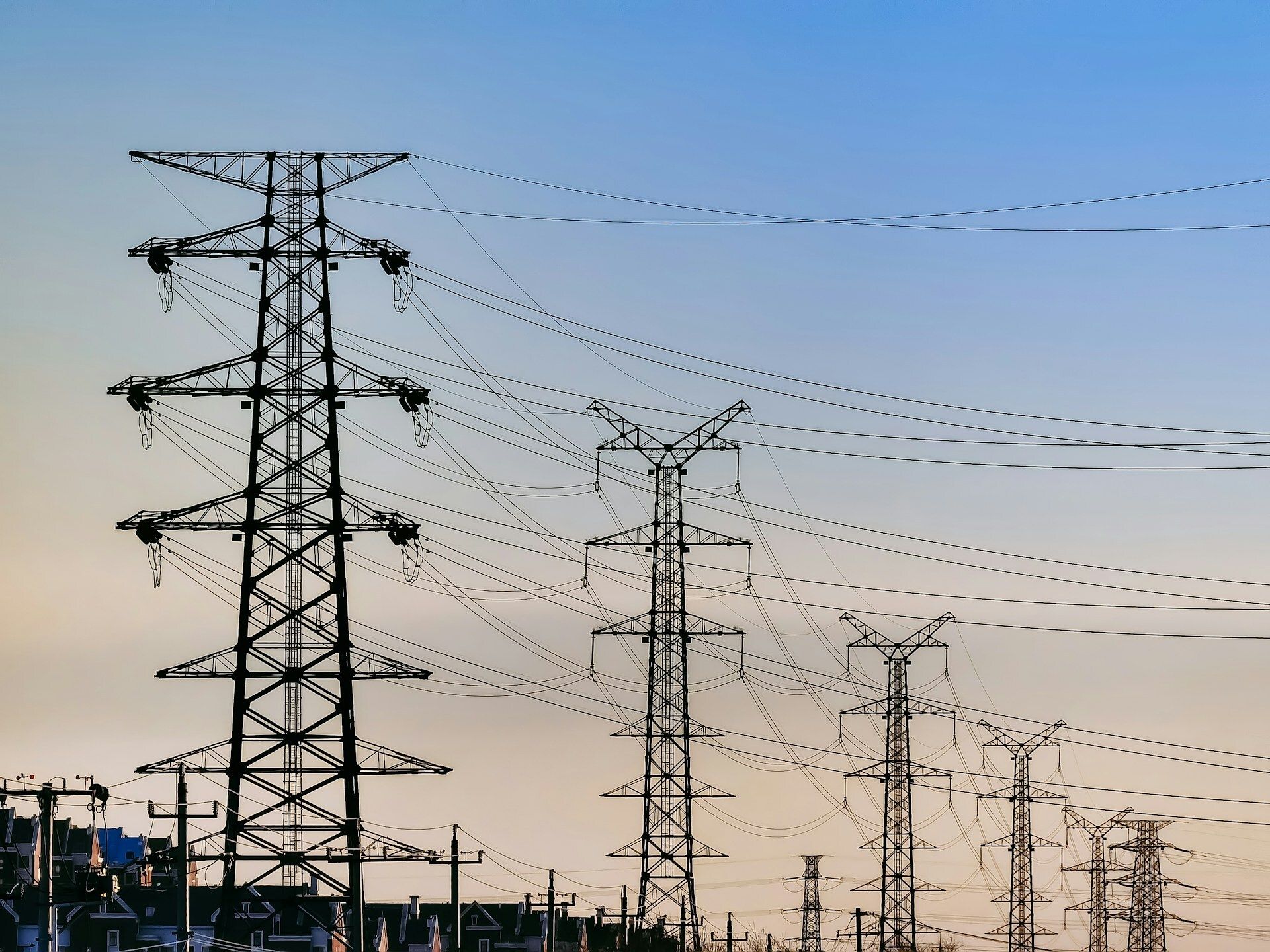Welcome to another edition of Climatebase Weekly (Tuesday, August 26th, 2025).
In today’s edition…
🌟 Featured climate jobs at 20+ new employers — Scroll down to view them all!
Don't see any that are a good fit for you? Head over to Climatebase to browse over 3k+ new jobs that have been posted in the last 24 hours.
Check them out below.
🌎 This Week In Climate: Utilities Want Their Power Plants Back, and Customers Could Foot the Bill
In this edition of This Week in Climate, we analyze how utilities in the Midwest and Mid-Atlantic regions are trying to regain the power to build and control power plants, and how it could mean significant price hikes for ratepayers.
Read the online version of this story here.
Quick reminders:
Employers: Are you hiring? Post your jobs and we'll share them with our 120K+ newsletter subscribers
Follow Climatebase on LinkedIn.
This Week In Climate
Utilities Want Their Power Plants Back, and Customers Could Foot the Bill
Earlier this summer, in a wonky, but important meeting in Washington, D.C., a handful of energy executives, lobbyists, and administrators met to discuss how to undo decades of power plant regulation. With surging power demands from data-hungry AI, the power industry says that it's the fastest and best way to meet the surge, but consumer advocates argue that the costs of deregulation will land on the shoulders of the consumer.
The Current Power Structure
For more than two decades, most of America’s power system has run on a simple idea: Utilities own and maintain the poles and wires, while private companies run the power plants that feed them.
Historically, vertically integrated utilities were the norm, meaning that a single utility owned the generation (power plants), the transmission lines (poles and wires), and the distribution systems that served customers within a given municipality, while each state regulated rates. In the 1990s, rising rates led to so-called ‘deregulation’ efforts to untie these assets and reduce costs.
This led to the emergence of Independent Power Producers (IPPs), or merchant generators, which are private companies that own and operate power plants.
As Inside Climate News points out, the important thing to understand about “deregulated” power markets is that “utilities would focus on the basics of delivering power and billing, and continue to receive a guaranteed profit for this, while non-utility companies would compete on an open market to see who can produce and sell electricity at the lowest price.” The word deregulation in this context simply refers to utility companies selling off or spinning off power generation plants to affiliated companies that no longer have a guaranteed profit.
Today, in the patchwork of regions which have “deregulated”, it’s common for utilities to still own both generation, transmission, and distribution infrastructure, while purchasing power from a mix of their own power plants as well as independent generators that sell power to wholesale markets that are managed by groups called Regional Transmission Organizations (RTOs) or Independent Systems Operators (ISOs).
Utilities are currently deregulated in about two dozen states (plus D.C.), and most no longer own the power plants but instead rely on IPPs who sell into wholesale markets run by RTOs like PJM (the Mid-Atlantic and Midwest region), ERCOT (Texas), NYISO (New York,) and ISO-NE (New England). There are a lot of acronyms in this story, but PJM is one of the nation's largest RTOs, which covers 13 states plus D.C. In June, PJM began lobbying to once again own those power plants, arguing that it's the only way to meet demand from data centers and prevent blackouts for customers.
Why This is on the Table Now
The explosive growth of power demand from data centers in recent months is straining capacity and driving the tactical shift by RTOs. The PJM region serves around 65 million people and last year, PJM paid upwards of 800% more for power than it did in 2023. The PJM includes what's known as “Data Center Alley,” a region in Virginia that’s home to the world's largest concentration of data centers. The PJM region is largely seen as a test case for how AI growth and its accompanying power demands have already impacted consumer prices.
PJM is predicting that 32 gigawatts of new demand will come online by 2030, meanwhile, the RTO only added less than 2 GW of power in 2024. The utilities argue that traditional power auction models can’t keep pace with the growing demand and pressures to keep prices down. As a result, they’re advocating to take back generation control so they can more directly build and control the new plants.
At Stake: Consumer Prices and the Climate
All this is very likely to land on the shoulders of consumers who will have to bear the brunt of the costs. What happened in Texas, which is deregulated, serves as the canary in the coal mine. The energy provider Griddy raised wholesale energy prices as high as $9000 per MW hour during the blackout and freeze in February 2021, when consumers saw energy bills as high as $5700. Griddy had to settle with consumers and file for bankruptcy as a result.
According to the Financial Times, PJM recently procured energy supplies for $329.17 per megawatt day which represents a 22% increase over last year, paying power producers $16.1 billion to meet energy needs from June 2026 to May 2027. Those additional costs will unquestionably be passed on to consumers.
There’s also the issue facing the nation's ageing power grids. As power plants retire, new ones are very slow to come online thanks to the massive need for sustained investment and a stable regulatory environment (which has been under siege under the second Trump administration). While Trump has rolled back many of the clean energy goals from the Biden era, and incentives are due to disappear for building clean energy power generators, nuclear has seen a resurgence (though those new plants are still many years off), and grid bottlenecks continue to persist. It's safe to assume that in the US, we’ll see an increase in the number of dirty plants powered by coal and pollutive fossil fuels like natural gas.
States and Consumer Advocates Push Back
While deregulation isn’t yet a done deal, it's back on the table and states are paying attention. This August, New Jersey passed laws that require greater clarity on how PJM makes decisions on prices, as consumers saw some significant price changes on their power bills. In January, Pennsylvania settled a lawsuit over PJM’s capacity market pricing, causing the RTO to lower its auction price cap from $500 MW/day to $325 MW per day.
Consumer advocates like Citizens Utility Board in Illinois are pushing for investment in renewables and storage to level out spikes and expand reliability of the grid. One proposed solution, there. is to use storage like renewables in order to fast-track deployment.
It’s a pitched battle, but one that consumers could still have a say in–especially if you live in a state with clean energy suppliers, or can invest in things like solar and battery backup power. There are also collective actions that you can take –like lobbying your state regulators to require transparent energy auction governance and accountability. You can also support reforms that prioritize transmission and reduce interconnection bottlenecks for clear energy projects.
While it's likely that consumers will shoulder the burden of deregulation and the cost of increasing power demand, the battle over who can own and profit from power plants continues to rage in Washington for some time to come.
New Jobs & Employers
Check out some of the latest featured jobs below. If you don't see anything that speaks to you, you can always go to Climatebase to explore over 50,000 new climate jobs.
The Seattle Times
“The Seattle Times is an independently owned, Pulitzer Prize-winning newspaper that provides thoughtful, engaging journalism to an audience of 1.9 million in the Pacific NW.”
Climate Reporter (Hybrid · Seattle, WA, US)
“Manatee is building the modern HVAC company to get affordable heat pumps in every home. ”
Director of Operations (Hybrid · Boston, MA, US)
“We are the default electricity provider in Alameda County and the City of Tracy”
Ava Charge Program Manager (Hybrid · Oakland, CA, US)
“Superconducting lines for 5-10x more power, reducing space and new corridor needs.”
Power Project Manager - Data Centers (In-person · Woburn, MA...)
Principal Superconducting Systems Engineer (In-person · Woburn, MA...)
Technical Lead- Data Centers (In-person · Woburn, MA...)
Senior Power Systems Engineer - Data Centers (In-person · Woburn, MA...)
Lead Superconducting Systems Engineer (In-person · Woburn, MA...)
“Revolutionizing heat pump design and sales to accelerate residential decarbonization”
Sr. Mobile Software Engineer (iOS) (Remote · Portland, ME, US)
“Accelerate climate action with verified carbon removal solutions.”
Backend Engineer (Hybrid · London, Engla...)
Senior Backend Engineer (Hybrid · London, Engla...)
Senior Frontend Engineer (Hybrid · London, Engla...)
Frontend Engineer (Hybrid · London, Engla...)
Head of Engineering (Hybrid · London, Engla...)
Senior Product Designer (Hybrid · London, Engla...)
Event Manager (Hybrid · New York, NY,...)
Science Programme Manager, Bio-CCS (Hybrid · New York, NY,...)
Business Development Executive (Hybrid · London, Engla...)
Business Development Manager (Hybrid · New York, NY, US)
General Application (Hybrid · Remote · Lond...)
“Accelerates transition to a resilient, low-carbon economy through robust climate policies and partnerships.”
Senior Fellow, Industrial Electrification (Hybrid · Washington, D...)
“Empowering companies to achieve carbon neutrality with software, consulting, and certified climate projects.”
(Senior) Software Engineer (m/f/d) (Hybrid · Munich, BY, DE)
(Senior) Software Engineer (m/f/d) (Hybrid · Berlin, BE, DE)
Machine Learning Engineer (m/f/d) (Hybrid · Munich, BY, D...)
Platform Engineer (m/f/d) (Hybrid · Munich, BY, DE)
“Investing in early-stage climate tech to drive profitable environmental sustainability.”
Enterprise Account Executive (Glacier Grid) (Remote · United States)
General Application for CFOs, COOs, CROs, CEOs (Hybrid)
General Application for Sales and Growth Specialists (Hybrid)
Sales Director (Riptk) (Remote · Ontario, CA)
Frontend Engineer (Metafold 3D) (Remote · Canada)
“"Boosting solar industry efficiency to maximize clean energy production and minimize costs globally."”
Enterprise Account Director (Hybrid,Remote)
Drone Pilot - Contract (Remote)
“Ambrook’s mission is to help American family-run businesses become more profitable and resilient. ”
Account Manager (Hybrid · Remote · New ...)
Software Engineer, Fintech (Hybrid · Remote · New ...)
Software Engineer, Mobile (Hybrid · Remote · New ...)
Software Engineer (Hybrid · Remote · New ...)
Software Engineer, Growth (Hybrid · Remote · New ...)
Partnerships Lead (Hybrid · Remote · New ...)
Demand Generation Lead (Hybrid · Remote · New ...)
“Facilitating farm transitions to agroforestry, enhancing sustainability and reducing climate impact.”
Opportunistic Hire (Hybrid,Remote)
“AI-powered climate risk predictions for a resilient economy and safer lives.”
Enterprise Account Executive (Hybrid · Remote · Unit...)
Staff Software Engineer, Fullstack (Hybrid · San Francisco...)
“Certifies Climate-Friendly farming practices and develops carbon credits to reduce and offset GHG emissions.”
Apply for Future Openings (Remote · United States)
“Leading climate change solutions at the nexus of tech, finance, and policy.”
Vice President - Transportation and Infrastructure (Hybrid · Washington, D...)
“Digital infrastructure for scaling the carbon markets with integrity”
Customer Success Manager (Hybrid · Remote · Atla...)
“Empowering off-grid regions with solar energy and efficient payment technology.”
HR Manager (Hybrid,Remote)







